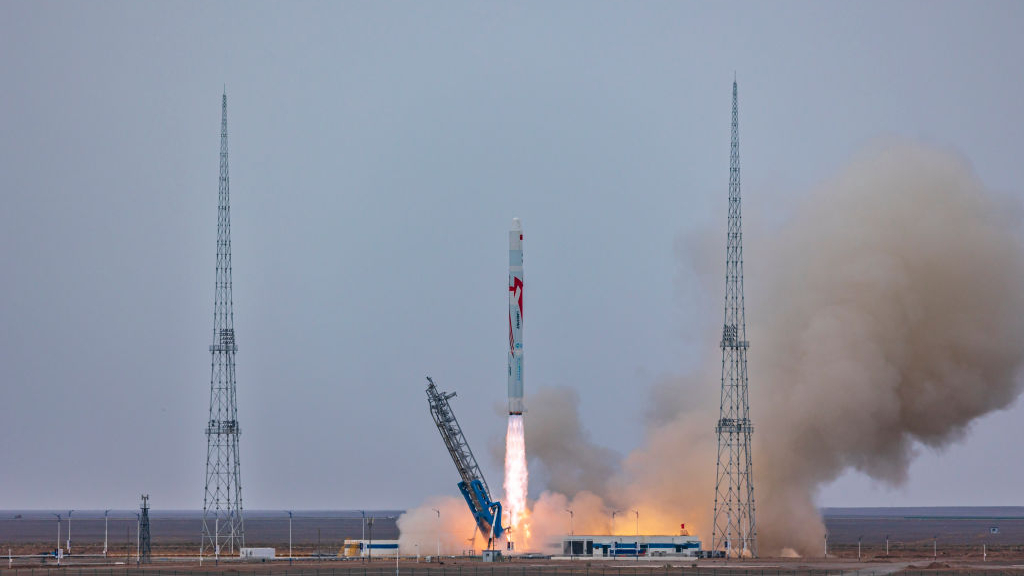
Chinese launch startup Landspace is set to launch its methane-powered rocket early next month.
This time, the Zhuque 2 (Vermillion Bird 2) rocket will be carrying satellites and aims to demonstrate its operational launch capabilities.
The launch comes just under a year after its first Zhuque-2 launch which ended in failure. It bounced back with its second launch in July, successfully reaching orbit. That launch however carried only a mass simulator rather than active payloads.
Related: China launches mystery satellite on Long March 7A rocket (photo)
The 162 ft (49.5 meters) long Zhuque-2 uses methane and liquid oxygen for propellant and became the first such rocket to reach orbit, ahead of Relativity Space’s Terran rockets and SpaceX’s Starship, which had a second test launch on the weekend, ending in a spectacular failure.
Preparations for the launch had been spotted at Jiuquan Satellite Launch Center using satellite imagery. The company built its own launch pad at Jiuquan to facilitate its methalox rocket.
The company’s leadership revealed this week that the launch is scheduled to take place at 07:30 a.m. Beijing time on Dec. 5 (2330 GMT or 8:30 p.m. EST on Dec. 4).
Landspace's Zhuque-2 pathfinder went vertical at the launch pad earlier this week as preparations continue ahead of the third flight of the only methane-powered rocket to reach orbit so far.This image was captured on 2023-11-11 @ 07:48:54 UTC. https://t.co/KYj9qxBfQ0 pic.twitter.com/9vuZsph0kLNovember 12, 2023
The success of Zhuque-2 and, in April, Space Pioneer’s Tianlong-2 rocket, marked a milestone in the development of Chinese commercial launch. The pair of rockets were the first liquid propellant rockets developed by Chinese startups to reach orbit. All other commercial launch company orbital launches up until then had been smaller and simpler solid rockets.
The third Zhuque-2 mission may not be the only “methalox” launch before the year is out. SpaceX launched its massive Starship on its 2nd test flight, while United Launch Alliance is preparing for the first flight of its new Vulcan Centaur.







